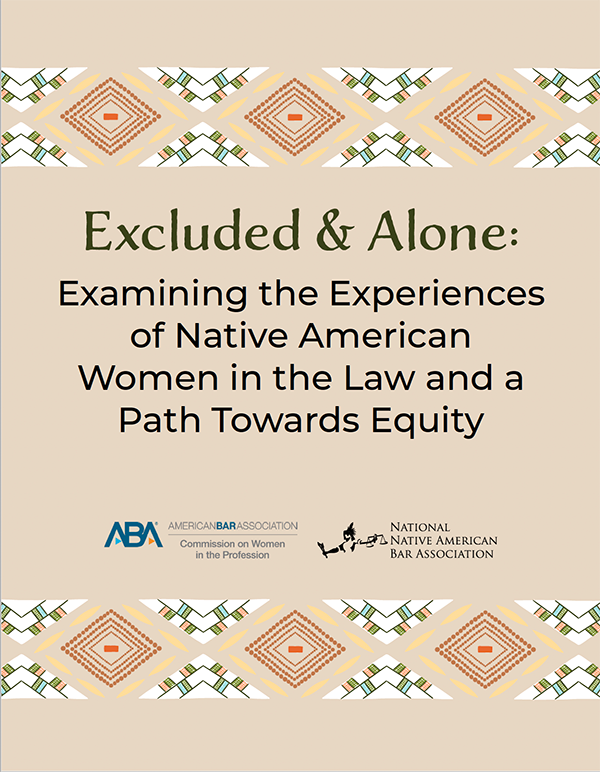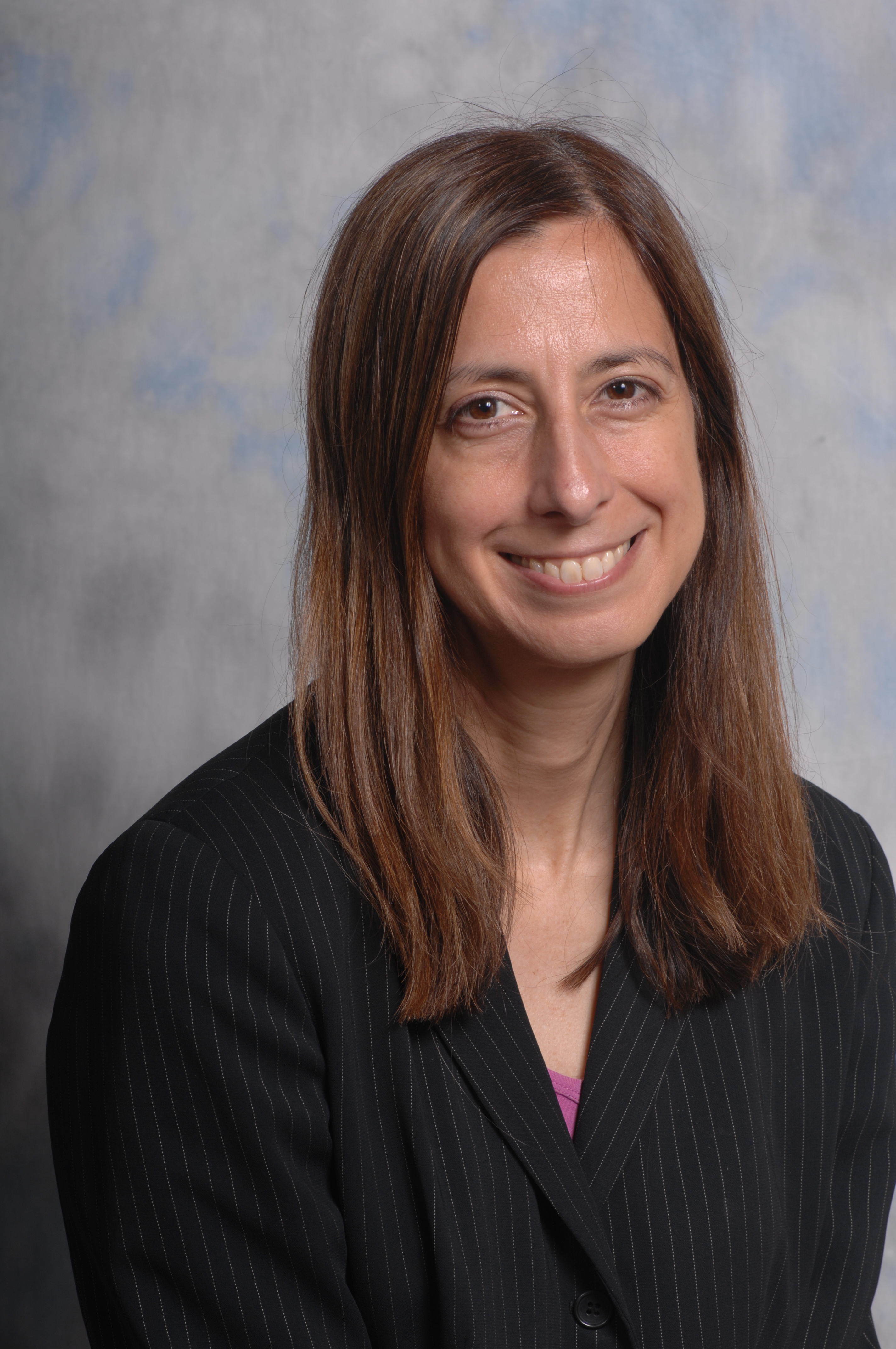Legal profession needs to support Native American female lawyers, new ABA report shows

Native American female lawyers often feel isolated and exhausted, and they have endured pervasive bias and harassment, according to a new report published by the ABA Commission on Women in the Profession and the National Native American Bar Association on Thursday.
Excluded & Alone: Examining the Experiences of Native American Women in the Law and a Path Towards Equity is based on a qualitative research study of the unique experiences of 74 Native American women who are navigating the intersection of race and gender in the legal profession. These women were randomly selected for interviews or to participate in collective listening sessions out of an initial pool of 154 registrants in late 2022 and early 2023.
“Finally, the voices of Native American women lawyers are being heard,” ABA President Mary Smith said in a press release. “This pioneering study shines a light on the unique barriers Native American women face in the legal profession, including financial obstacles, caretaking obligations, limited mentoring opportunities and the persistent issues of erasure, harassment and bias.”
Smith, the first Native American female president of the association, added: “While the findings may be sobering, they serve as a crucial step toward improving the experiences of Native American women lawyers.”
To assess generational differences and similarities, the report provides the perspectives of three different groups of participants: Native American women who have practiced five years or fewer; those who have practiced between five and 15 years; and those who have practiced 16 years or more. When asked why they wanted to share their perspectives, members of all three groups said they felt frustrated by Native American women being “relegated to footnotes” in most studies of race and gender in the legal profession.
According to the report, women in all three groups said they faced financial struggles when applying to and attending law school. Those who have practiced five or fewer years, however, were the most likely to have parents or other adults in their lives who are lawyers in addition to being most likely to access pre-law programs or other supports for Native American students.
 “It’s clear that the law requires more change and inclusion,” ABA President Mary Smith wrote in the study’s introduction. (Photo courtesy of the Chicago Bar Association.)
“It’s clear that the law requires more change and inclusion,” ABA President Mary Smith wrote in the study’s introduction. (Photo courtesy of the Chicago Bar Association.)All three groups of women noted similar levels of isolation and exhaustion while in law school. According to the report, while Native American women who have practiced five or fewer years said they experienced the same levels of high stress as the other women, they were more likely to articulate their mental health challenges. Meanwhile, the women who have practiced between five and 15 years were most likely to feel frustrated by a lack of resources to address these challenges.
“The younger generation is better at asking for what they want,” according to one respondent quoted in the report. “When I was falling apart decades ago, I would just yell at myself to get up and keep going. It worked, but I’m sure at a cost.”
Native American women in the report shared varying perspectives on their entry into the legal profession. Those who have practiced five or fewer years had the most access to career planning services but expressed high levels of frustration about career services’ familiarity with jobs related to tribal or Indian law.
Women who have practiced between five and 15 years were most likely to have chosen careers based on whatever was open, while those who have practiced more than 16 years reported using “whatever was available” to identify opportunities after law school.
Native American women in all three groups reported consistent and extensive levels of bias and harassment in both law school and their careers. According to the report, their experiences varied, with women who have practiced five or fewer years noting they weren’t sure how to process and navigate these situations and women in the other two groups noting they mostly absorbed their frustrations over bias and harassment, attrition and lack of progress.
How can the legal profession be more inclusive of Native Americans?
In their report, the ABA Commission on Women in the Profession and the National Native American Bar Association share recommendations from participants on how to improve the experiences of Native American attorneys in the legal profession.
Among them, the women suggest continuing to support and expand pre-law programs for Native Americans; training law school faculty and administration on the needs of Native American students, particularly Native American female students; and ensuring inclusive mental health services are available for Native Americans in law schools.
Participants in the study also recommend integrating information about Native Americans in all diversity, equity and inclusion trainings in the profession and creating cross-generational mentoring circles for Native American women in all geographic and practice areas.
The report additionally provides a detailed call to action section for specific groups in the legal profession, including individuals, law schools, bar associations, employers and philanthropic organizations.
Included in its recommendations:
• Individuals should educate themselves on the lived experiences, history and culture of Native Americans.
• Educational institutions should integrate policies that make law school more financially accessible to Native American communities.
• Bar associations should provide programs and panels for early-career Native American women.
• Employers should ensure their recruiting staff and hiring managers are using strategies and practices that are inclusive of Native American women.
• Philanthropic organizations should advertise resources and opportunities to Native American organizations.
ABA Commission on Women in the Profession member Jin Hwang and past National Native American Bar Association President Linda Benally served as the study’s co-chairs. Arin Reeves, the president and managing director of consulting firm Nextions, was its lead researcher.
For complete study results and other information, visit the ABA Commission on Women in the Profession’s website.
Write a letter to the editor, share a story tip or update, or report an error.



